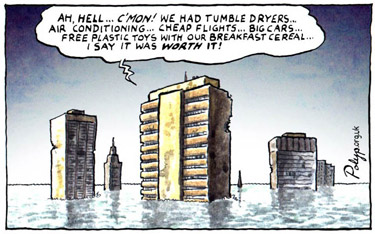 an open letter to the CEO of the ANZ Bank
an open letter to the CEO of the ANZ Bank
For Personal Attention: Mike Smith, CEO
Dear Mike,
I figure you’re a decent chap. You’re quoted as saying: “We are focussed on growing our business responsibly, managing risks rather than taking them and approach our role in society with a heightened sense of duty and care towards our customers and the communities we serve.”
You’ve achieved that on one level. Your branch staff are some of the most efficient, knowledgeable, helpful and best-trained workers I’ve come across in retail banking. Well done.
But there’s a serious problem with ANZ activities on the national and international level. Consider these two questions:
- Would you say it’s wrong to do things that are seriously harmful to the planet’s ecosystem?
- Would you say it’s wrong to profit financially from doing things that are seriously harmful to the planet’s ecosystem?
So that’s the issue. Is it true that ANZ Bank continues to invest in fossil fuel exploration and extraction? Is it true that ANZ Bank and its investors continue to make profits from destroying the planet’s ecosystem?
Continue reading →


